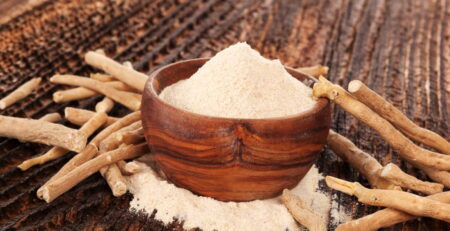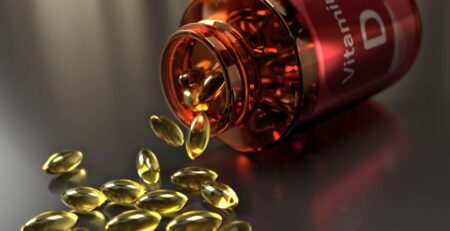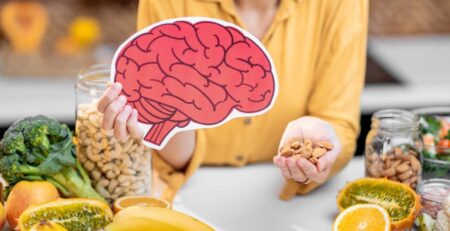Vitamin MD’s Guide: Best Vitamins For Energy and Depression
Imagine waking up each day feeling energized, ready to take on the world, your spirits as bright as the morning sun. Sounds appealing, right?
However, for those battling depression, this scenario may seem like a distant dream, and their reality could be quite the opposite—days filled with fatigue and a clouded mindset.
Recent statistics show that nearly 280 million people worldwide struggle with depression. What’s more alarming is the often-overlooked correlation between depression and low energy levels, creating a vicious cycle that’s hard to break.
But here’s the good news. Specific vitamins, nature’s little helpers, can significantly boost your energy and lift the fog of depression. In this blog post, we will navigate the Vitamin MD’s Guide to the top vitamins that can light up your path to better energy levels and mental health.
Understanding Depression and Energy Levels
The Intricate Connection between Depression and Energy Levels
To appreciate the impact of vitamins on our mood and energy levels, we first need to understand the complex relationship between depression and energy.
Depression is a mental health disorder characterized by persistent sadness, loss of interest in activities, and a significant decrease in energy levels. This pervasive lethargy is a formidable barrier to leading a fulfilling, active life.
The Biochemical Aspect of Depression
On a biochemical level, depression is linked to the imbalance of neurotransmitters in the brain, including serotonin, dopamine, and norepinephrine. These neurotransmitters regulate our mood, energy levels, and overall well-being.
Depression’s Impact on Daily Life
The low energy associated with depression can severely impact daily activities, making even the simplest tasks seem daunting.
In the long term, this can lead to a lack of productivity, difficulties in personal relationships, and a general feeling of being stuck in a vicious cycle of low mood and depleted energy.
Role of Vitamins in Boosting Energy
Vitamins are much more than just elements in a nutritious diet. They play a pivotal role in maintaining our energy levels and overall health.
The Energy-Vitamin Connection
Energy is primarily derived from the food we consume, broken down, and converted into a usable form known as adenosine triphosphate (ATP). Several vitamins, including B and C, are instrumental in these energy-producing metabolic reactions.
B-Vitamins: The Energy Producers
B vitamins are often called ‘energy vitamins’ because they are critical in energy production. They help convert dietary nutrients like carbohydrates, fats, and proteins into ATP. Additionally, B vitamins, particularly B12, and folate, are essential for forming red blood cells, which transport oxygen, a crucial element for energy production, throughout the body.
Vitamin C: The Metabolic Booster
Vitamin C, another key player, aids in the metabolism of proteins and synthesizing neurotransmitters. It also enhances iron absorption, a mineral vital for energy production.
Role of Vitamins in Alleviating Depression
While vitamins are crucial for energy production, their role doesn’t stop there. Certain vitamins have been found to play an essential role in managing depression and promoting mental well-being.
Vitamin B-Complex: The Mood Regulators
B vitamins, particularly B6, B9 (folate), and B12, are involved in synthesizing brain chemicals that regulate mood. They aid in forming serotonin and dopamine, neurotransmitters that play a crucial role in depression.
Research has shown that vitamin deficiencies can lead to depression, highlighting their importance in mental health.
Vitamin D: The Sunshine Vitamin
Often called the “Sunshine Vitamin,” Vitamin D significantly impacts mood and depression. Vitamin D receptors are widely located in the brain, including areas linked with depression.
Research has revealed a correlation between low levels of Vitamin D and symptoms of depression. Thus, maintaining optimal Vitamin D levels can be a proactive step toward better mental health.
Spotlight on Key Vitamins
Let’s delve deeper into the specific vitamins that act as powerhouses for boosting energy and combating depression.
Vitamin B-Complex: Energy Producers and Mood Regulators
B vitamins are a group of eight water-soluble vitamins that perform a range of functions, including energy production and mood regulation.
- B1 (Thiamine): Vital for energy production and nerve function.
- B2 (Riboflavin): Crucial for breaking down proteins, fats, and carbohydrates for energy.
- B3 (Niacin): Assists in the function of the digestive system, skin, and nerves; also converts food to energy.
- B5 (Pantothenic Acid): Important in fatty acid metabolism.
- B6 (Pyridoxine): Aids in producing serotonin, a mood regulator.
- B7 (Biotin): Assists in energy production from carbohydrates.
- B9 (Folate): Essential for forming red blood cells and DNA; aids in the production of serotonin.
- B12 (Cobalamin): Crucial for red blood cell formation, nerve function, and DNA synthesis; helps produce energy from proteins and fats.
Vitamin C: The Immunity and Energy Booster
Vitamin C is known for its immune-boosting properties, but it’s also an integral part of the body’s energy production process.
It aids in the metabolism of amino acids and the synthesis of neurotransmitters. Vitamin C enhances iron absorption, promoting optimal red blood cell function and energy production.
Vitamin D: The Mood Elevator
Vitamin D, produced in the skin in response to sunlight, plays a crucial role in mood regulation. Its deficiency has been associated with depressive symptoms, making it an essential vitamin for mental health.
Vitamin MD’s Recommendations
At Vitamin MD, we understand the profound impact of the proper nutritional supplementation on energy levels and mental health. Here are our top picks designed to support your vitality and mood.
B-Complex Plus by Vitamin MD
Our B-Complex Plus is a balanced, comprehensive supplement with eight essential B vitamins. It’s tailored to support energy production, enhance performance, and promote a positive mindset.
Vitamin MD’s C-Boost
Our C-Boost is an advanced Vitamin C formula to enhance immune function and energy production. With added citrus bioflavonoids to enhance its action, C-Boost supports your overall vitality.
Sunshine D by Vitamin MD
Sunshine D is our carefully crafted Vitamin D supplement to support bone health, immune function, and mood regulation. Made to supplement your natural sun exposure, Sunshine D is your daily dose of the “Sunshine Vitamin.”
Natural Mood Enhancers For Depression
Depression is a severe condition that should be treated under the guidance of a healthcare provider. However, specific natural mood enhancers, in conjunction with prescribed treatments, may help alleviate symptoms of depression. Here are some:
- Physical Activity: Exercise is known to boost mood by triggering the release of endorphins, often called “feel-good” hormones. Regular exercise has been associated with reduced symptoms of depression.
- Healthy Diet: Consuming a diet rich in fruits, vegetables, lean proteins, and whole grains can help boost mood. Certain foods like fatty fish, nuts, and seeds are high in omega-3 fatty acids, which are linked to improved mental health.
- Sleep: Ensuring you get a good night’s sleep can help manage symptoms of depression. Establishing a regular sleep routine, reducing screen time before bed, and making your sleep environment comfortable can improve sleep quality.
- Sunlight: Exposure to natural sunlight can boost serotonin levels, which can improve mood and help regulate your sleep-wake cycle.
- Stress Management: Techniques such as meditation, deep breathing, yoga, and mindfulness can help manage stress, a common trigger for depressive episodes.
- Social Interaction: Regular interaction with friends, family, or support groups can provide emotional support and a sense of community, which can be beneficial in managing depression.
- Supplements: Certain supplements like St. John’s Wort, SAMe, Omega-3 Fatty Acids, Probiotics, and certain vitamins and minerals (Vitamin D, B-Vitamins) have been studied for their potential benefits in depression. However, it’s crucial to consult a healthcare provider before starting any supplement regimen, as some can interact with medications or have side effects.
- Psychotherapy: Techniques like cognitive-behavioral therapy (CBT) and interpersonal therapy (IPT) have proven highly effective in treating depression.
Supplements For Depression

While professional medical treatment is essential for managing depression, certain dietary supplements have been studied for their potential benefits in supporting mental health.
However, these should be used with traditional treatments and not as substitutes. Always consult a healthcare professional before starting any new supplement regimen, as some can interact with medications or have side effects. Here are some supplements that have been researched:
- Omega-3 Fatty Acids: These essential fats are critical for brain health. Some studies suggest that they may have mood-stabilizing effects and can aid in treating depression.
- SAMe (S-adenosylmethionine): SAMe is a compound that occurs naturally in the body and is thought to enhance neurotransmitters’ impact on mood regulation. Some studies suggest it may be beneficial in managing depression symptoms.
- 5-HTP (5-Hydroxytryptophan): 5-HTP is a compound that the body converts into serotonin, a neurotransmitter that regulates mood. Some research suggests it may help improve symptoms of depression.
- St. John’s Wort: This herb has been used for a long time to treat various conditions, including depression. However, it’s important to note that it can interfere with multiple medications, including antidepressants, birth control pills, and blood thinners.
- Vitamin D: Studies have linked vitamin D deficiency to depression. If you’re deficient in this nutrient, supplementing it may help improve mood.
- B-Vitamins: Vitamins B9 (folate) and B12 have been linked to depression, and supplementing with these may help manage symptoms, especially in deficient people.
- Magnesium: Some research suggests magnesium may help with brain functions that reduce stress and anxiety.
- Probiotics: Emerging research suggests a link between gut health and mood. Probiotics, beneficial bacteria, may support brain health and improve mood.
Final Words
Maintaining robust energy levels and a balanced mood can be challenging, especially when depression casts its shadow. Vitamins, as part of a comprehensive approach to health, can play a significant role in energy production and mood regulation.
Vitamin MD offers a range of high-quality supplements tailored to support your vitality and mental well-being. Incorporating a healthy lifestyle, regular exercise, a balanced diet, and the right supplementation can make a difference in your journey toward better health.
Remember, you are not alone; professional help is available whenever needed.












Leave a Reply